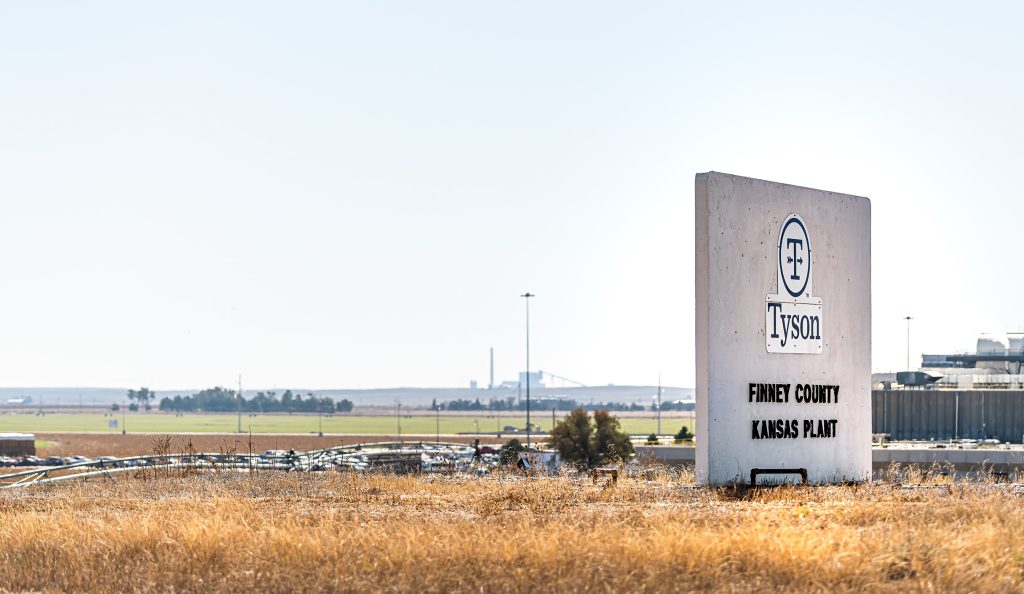Back in 2019, a fire in Holcomb, Kansas shuttered a Tyson meatpacking plant that handled five to six percent of beef processed in the U.S. In the aftermath, beef packers simultaneously raised retail prices and cut the price paid to cattle producers, pointing to their lost processing capacity as an excuse.
It’s now three years later and the top four meatpacking companies keep referencing this fire — most recently at a House Agriculture Committee hearing called An Examination of Price Discrepancies, Transparency, and Alleged Unfair Practices in Cattle Markets. Speakers representing the Big Four, whose companies happen to control 85% of the beef market, are using it to illustrate how events — like a fire, a pandemic, or a war — cause supply chain disruptions and eventually price increases.
But this is just an excuse to give them cover while they reap excessive profits, and it’s time to set the record straight. These Big Four representatives omitted some key information about the impacts of the fire. For instance: in the weeks following the fire, the beef industry processed 5,000 more cattle than in the three weeks before it. Clearly, they had the capacity to replace the Holcomb plant’s capacity all along.
The Holcomb fire serves as an excellent case study for how dominant corporations manipulate the market such that any disruptions ultimately benefit their own bottom line — at the expense of everyone else.
And so, to make sure everyone has all the facts, we sent the below letter to the members of the House Agriculture Committee. We hope you’ll stay tuned to our work as we keep putting pressure on decision-makers to shift power over our food and farm system out of the hands of consolidated corporations.

May 2, 2022
The Honorable David Scott
Chairman of the House Agriculture Committee
468 Cannon House Office Building
Washington, D.C. 20515
The Honorable Glenn Thompson
Ranking Member of the Agriculture Committee
400 Cannon House Office Building
Washington, D.C. 20515
Dear Chairman Scott, Ranking Member Thompson, and other members of the House Agriculture Committee:
We sincerely appreciate the hearing An Examination of Price Discrepancies, Transparency, and Alleged Unfair Practices in Cattle Markets your committee held on April 27th. We have been extremely concerned by some of the anti-competitive price manipulations we have noted, demonstrated by farmers’ substantially reduced share of the consumer dollar and meatpackers’ record-high profits. We are glad to see Congress addressing this critical flaw in our food supply system, and applaud your efforts to bring this issue to the forefront of the debate.
During the hearing, we noted several occasions where participants mentioned disruptions caused by the fire at the Tyson processing plant in Holcomb, Kansas. We wanted to bring to your attention how the consolidation of the meatpacking industry has allowed dominant corporations to benefit from unethical price manipulation schemes that manipulate disruptive events, such as the fire in Holcomb, to benefit themselves at the cost of the producers and the consumer.
On Friday, August 9, 2019, a fire in Holcomb, Kansas shuttered a Tyson plant that handled five to six percent of beef processed in the U.S. By Monday morning, the packers’ dire warnings of shortages caused retail grocers to make a run on beef in order to secure the expected Labor Day sales. Beef packers simultaneously cut the price paid to cattle producers with excuses about lost processing capacity.
By August 24th, the result was a 67% spread in what beef packers paid the cattle producer and how much they charged the retail grocery. To put this in perspective, this spread reflected a 143% increase over the average from 2016-2018. What is most telling about the market power of the dominant beef packers is that in the three weeks that followed the fire, the beef industry actually slaughtered 5,000 more cattle than the three weeks prior to the fire. In reality, the packers had the processing capacity to replace the Holcomb plant’s capacity all along.
We maintain that this is not an isolated incident and that meatpackers continue to use the pandemic and its related supply chain issues to hike prices excessively. While farmers earn less and consumers pay more than ever, meatpackers are reporting record-high profits.
Again, we would like to thank you for your close examination of this issue. We highly encourage you to consider the testimonies of Gilles Stockton and Coy Young and to continue to pursue your investigation into price manipulation and transparency in the beef market.
Sincerely,

Joe Maxwell
President, Farm Action

